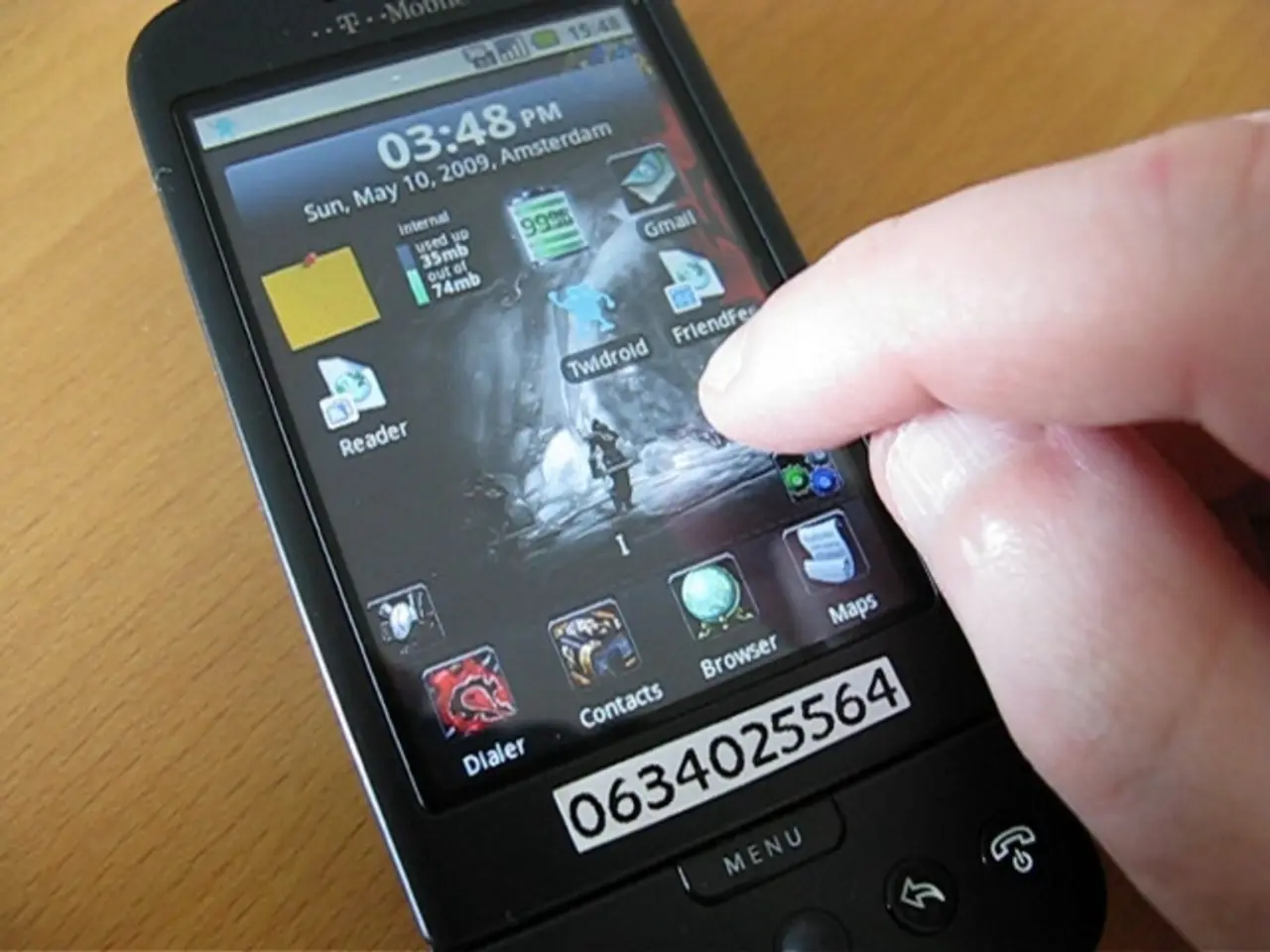Growing user base for Truecaller, expanding to 427 million, amidst heightened questioning and criticism
Truecaller, a popular app used to identify unknown numbers and block potential spam calls, has faced privacy concerns in Nigeria. The main issues revolve around the accuracy and reliability of phone number identification and data handling practices.
The Nigerian Communications Commission (NCC) has warned against relying solely on Truecaller for accurate caller identification, as the app is not integrated with Nigeria's SIM registration system. This lack of integration can lead to possible mismatches or recycled phone numbers showing up inaccurately on Truecaller.
Privacy concerns also arise from how Truecaller collects and reveals personal information. Features like 'Who Viewed Your Profile' notify users when someone views their profile, potentially exposing contact information. However, users can activate a Private mode option to limit visibility.
In an effort to address these concerns, Truecaller provides users with privacy controls such as profile visibility settings and a privacy center within the app. The company is also actively enhancing privacy features, including the Private mode in the Pro subscription, to give users more control over their data exposure.
However, explicit, detailed compliance steps aligned with the Nigeria Data Protection Act (NDPA) have not been publicly disclosed. The NCC and other regulators are focusing on educating the public about responsible SIM card registration and usage to mitigate risks.
Despite these concerns, Truecaller remains a valuable tool in countries like Nigeria, where spam calls and fraudulent SMS messages are common. The app's call-blocking features offer a tangible quality-of-life improvement.
Truecaller's story in the Middle East and Africa (MEA) region is a balancing act between being a vital everyday tool and navigating the increasingly complex web of data protection laws across emerging markets. The MEA region has experienced a surge in smartphone adoption and mobile data access, and Truecaller is active on 20% to 45% of connected smartphones in key MEA markets.
In August 2025, Truecaller crossed 100 million monthly active users (MAUs) in the MEA region. The company blocked nearly 56 billion unwanted calls globally in 2024. As of April 2025, Truecaller had surpassed 450 million active users worldwide.
Critics have raised concerns over how Truecaller collects and processes contact data, especially when much of its directory is crowd-sourced from users' phonebooks. In Q2 2025, Truecaller averaged 367 million daily active users.
The Nigeria Data Protection Commission (NDPC) launched an investigation into whether Truecaller's operations comply with the Nigeria Data Protection Act. This is not the first time Truecaller has been questioned by regulators in Nigeria about its data collection and processing practices.
The probe coincides with the rollout of the NDP Act-General Application and Implementation Directive (NDP Act-GAID), which sets out rules for lawful data processing, cross-border data transfers, and grievance resolution. The company's ability to keep both user trust and regulatory approval intact will determine whether its current dominance turns into a long-term fixture on smartphones from Lagos to Cairo.
In conclusion, the key privacy issue in Nigeria stems from Truecaller's lack of integration with official SIM data and potential misuse of registered numbers by unauthorized users, affecting data accuracy and privacy. Truecaller's response involves giving users control over their personal data visibility and adding privacy features, although explicit, detailed compliance steps aligned with the Nigeria Data Protection Act have not been publicly disclosed in the search results. Nigerian authorities, particularly the NCC, emphasize caution in relying on Truecaller data and are promoting public awareness to mitigate risks.
- The lack of integration between Truecaller and Nigeria's SIM registration system, as well as concerns over data accuracy and privacy regarding how Truecaller collects and reveals personal information, have led to investigations by the Nigeria Data Protection Commission (NDPC).
- Despite the ongoing investigation, Truecaller remains a valuable tool in Nigeria, providing effective call-blocking features, especially in light of the country's high prevalence of spam calls and fraudulent SMS messages.




